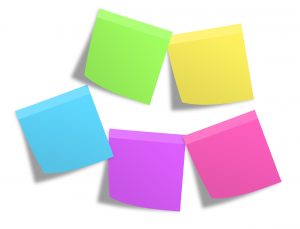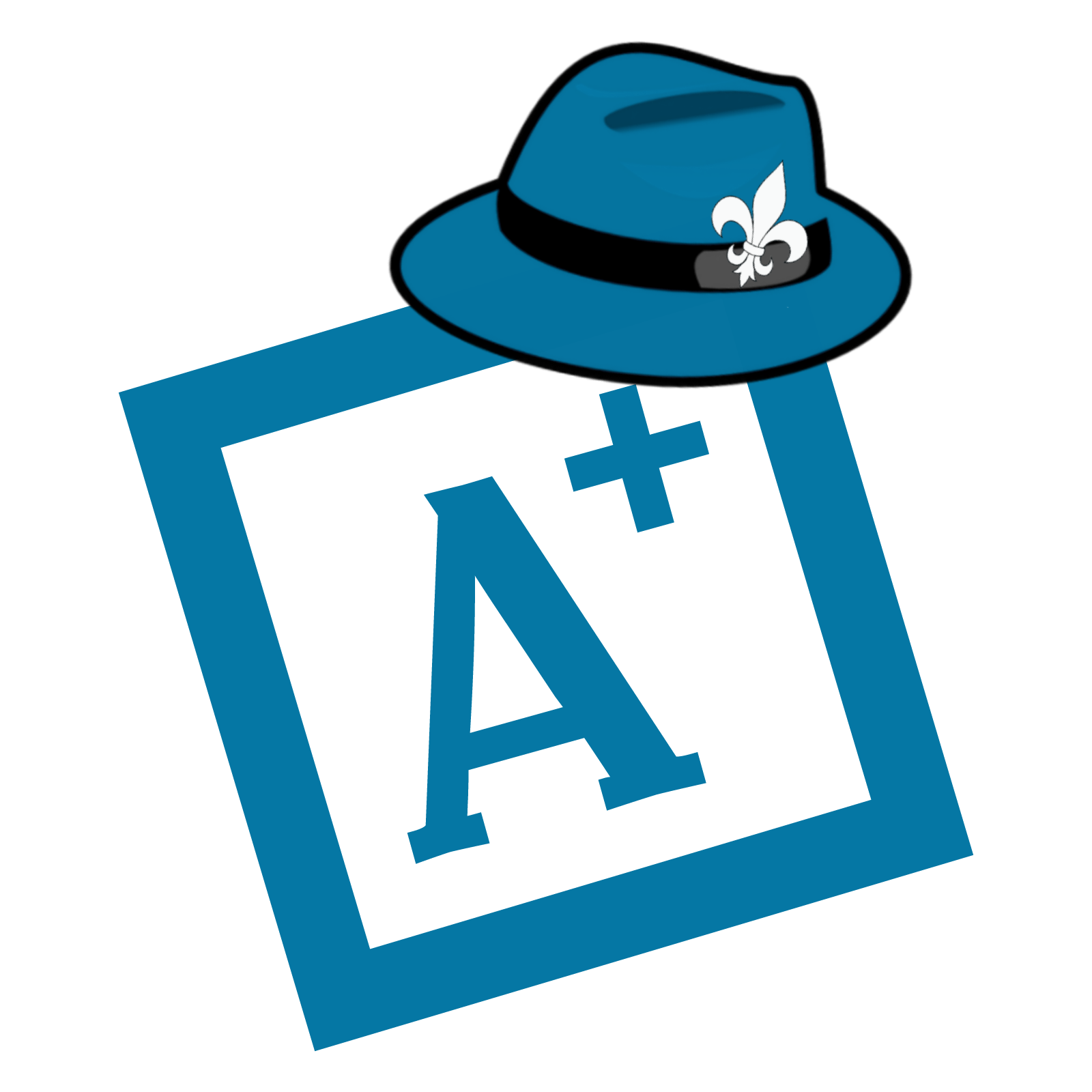Learning a new language is a long process but it doesn’t have to be painful. Vocabulary words do have to be learned but there are easier ways to do it than read and repeat those infamous vocabulary lists. Ewww!
Start with the words and expressions that you encounter on a regular-basis. Look around you. Work on your hobbies in French. Start with your interests and expand your reach.
Take things into your own hands
The brain needs about 7 encounters with a concept or a word to remember it. New neurological pathways have to be created and expanded. You already know the word in English, now give yourself the chance to learn it in French. This includes seeing, hearing, saying and writing down a word or expression. So don’t sweat it too much when you think you should know a word after the first time!
Where can I find new words?
Start with your immediate area. What do you see? Where are you? Can you describe the room you are in right now? If you go for a hike, what can you say? You like painting? What are all those instruments and colours called in French?
You can also get new vocabulary words in movies or online videos in French. Turn on the French subtitles so you can see and hear the words at the same time! Song lyrics are also a great way to follow along and translate to understand the meaning of it. You may also find expressions that you would not see anywhere else!
Build a personal dictionary
Good old paper! The brain still prefers pen and paper and you may find that writing things down will help you remember better. In a notebook, you can trace a line in the middle of a page or use a spread as one dictionary page. On the English side, write the English word (duh!). You can also add a picture or drawing of the object and a contextual sentence. On the French side, write the French word (obviously!). You can also add the pronunciation in phonetical alphabet or the way it sounds to you and will make it easier to remember. Write a sentence in French that reminds you of the right way to use it. A great online tool you can use is wordreference.com
You can create categories in your book, use sticky flags or a colour code to group words together, either by type of word or subject. Always keep your personal dictionary close by since you never know when you will need it! If you feel ambitious, you can type it up and make it a searchable dictionary but remember to write it on paper first. Refer to the topic at hand regularly until you remember the words.
Mind mapping your success
 A mind map is basically a big brainstorm of ideas on one topic. It is used for many different purposes and helping you learn a language is one of them. Use a large sheet of paper or large cardboard that you can find at the dollar store. This is a great way to learn vocabulary that makes sense in your situation instead of learning long lists of vocabulary words that may not be related to a topic.
A mind map is basically a big brainstorm of ideas on one topic. It is used for many different purposes and helping you learn a language is one of them. Use a large sheet of paper or large cardboard that you can find at the dollar store. This is a great way to learn vocabulary that makes sense in your situation instead of learning long lists of vocabulary words that may not be related to a topic.
Step 1: Pick a theme
Pick a theme and write it in the middle of your mind map. For example, you could build vocabulary around the office life, the restaurant or a meeting.
Step 2: Pick subcategories
Add subcategories that work well with your general theme. For example, if I want to learn vocabulary words for things around the office, my categories could be about office supplies, actions I need to do during my day and phrases I use regularly to answer the phone. Be creative. You can also build your mind map little by little and jot down ideas on a piece of paper while you are working.
Step 3: Look up the words
Once I’ve decided on my subcategories, I can then list all the words that come to mind for that subcategory. For example, I can list all the office supplies I can see in front of me while I am sitting at my desk. Start with writing them in English and then look up the words and expressions in a dictionary. Finally, add all the news words to your personal dictionary.
The “Sticky note” Technique
 This technique is pretty self-explanatory. One sticky note: one word. It can work to help you remember words for physical objects. The brain learns concepts better than word for word. It allows you to step away from learning the translation (apple = pomme) and instead adapt your learning to the concept the object represent. It is also a tangible way to witness your progress since you can throw out the sticky note once you know that word!
This technique is pretty self-explanatory. One sticky note: one word. It can work to help you remember words for physical objects. The brain learns concepts better than word for word. It allows you to step away from learning the translation (apple = pomme) and instead adapt your learning to the concept the object represent. It is also a tangible way to witness your progress since you can throw out the sticky note once you know that word!
It is also a constant reminder of the correct word, the correct spelling and the correct pronunciation if you want to add to it. It can help you learn the words you’ve added to your personal dictionary.
Flash cards
Flash cards can be used to learn concepts, actions verbs and expressions in a visual way. There are multiple resources online to help you create your own on the topic you are learning. You can create flashcards after mind mapping so it can help you learn a different way.
You can make it a competition with a colleague who is also learning the language. A simple game or review of the flashcards for 15 minutes per day can go a long way. It is a fun way to learn and challenge yourself.
Are you ready to step up your game?
Phew! Still with me? Great! Some of those tips are presented into more details in our free 3-day training to help you gain clarity on your goals. Do you want to be able to build your own action plan and finally succeed at learning the French language? If the answer is ‘yes’, click below to sign up for our FREE 3-day training!
If the answer is ‘no’, we’d love to hear your feedback. What have we missed in our attempt to help you take that first step? What obstacles might we have overlooked?
Now it’s your turn. What are your tips? What helps you remember vocabulary better and make it fun?


